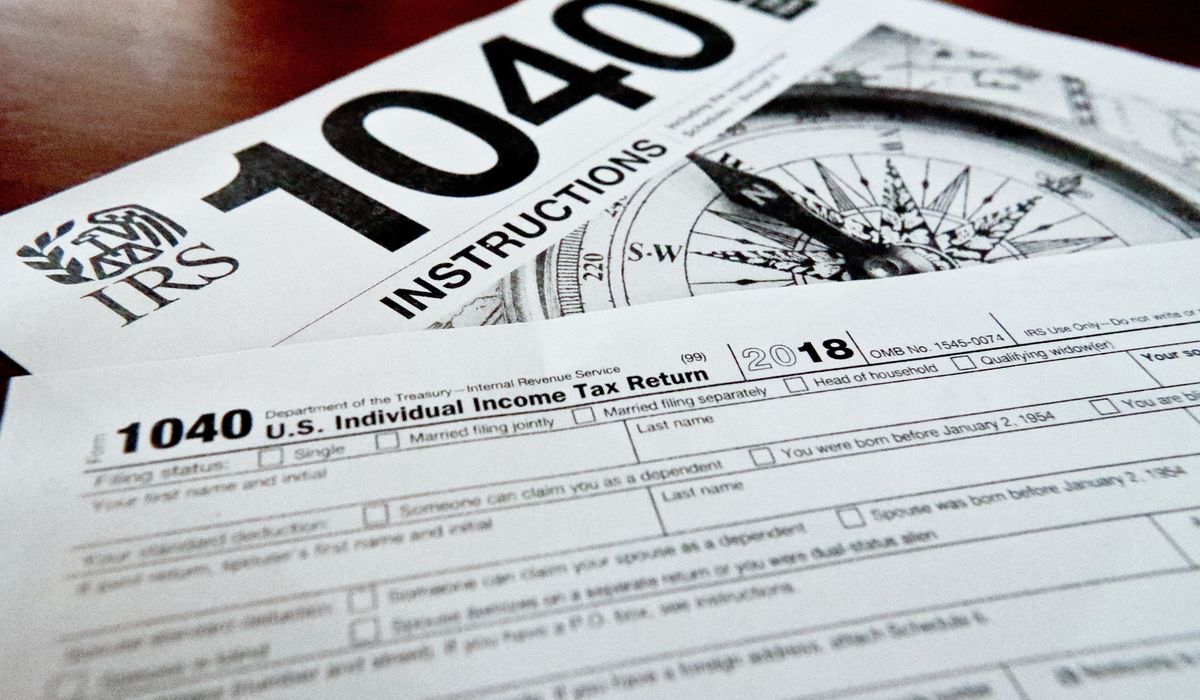


Buy, borrow and die.
It may sound like the old joke about the inevitability of death and taxes, except in this case, it turns out it’s how the wealthy avoid paying taxes.
Someone buys a company or builds a massive investment portfolio, they watch its value grow, they borrow against that increase and spend the borrowed money to fund their lifestyle. Then they die, never having sold the asset, passing it on to their heirs in a tax-free transaction.
“And that’s how billions of dollars in income gets an income tax rate of zero,” said Morris Pearl, a former managing director at Blackrock and now chairman of Patriotic Millionaires.
And it’s all “perfectly legal,” said Sen. Ron Wyden, Oregon Democrat and chairman of the Senate Finance Committee.
“Buy, borrow and die” (BBD) was on showcase in Congress on Thursday, as tax experts explored the big ways the wealthy enjoy their wealth without ever having to account to Uncle Sam.
Other schemes include using like-kind exchanges in real estate to build wealth without paying taxes on the increasing value, using exchange-traded funds to defer capital gains or pumping money into private placement life insurance, a Health Savings Account or a mega-backdoor Roth IRA.
They’re all “egregious but lawful,” said Chye-Ching Huang, director of the Tax Law Center at New York University.
She said it comes to hundreds of billions of dollars a year in tax revenue the federal government doesn’t receive. One estimate shows the federal government missed out on $200 billion in revenue last year because of low tax rates on dividend income.
The experts said the problems grow out of how the tax code treats income. Most taxpayers’ money comes from wages or a salary, and they pay the government regularly. Money is withheld from every paycheck, and they settle up for what else they owe each year.
Wealthy folks who rely on investments don’t have to face that. Because they get to choose when their income is “realized” — usually the sale of the asset — they control when, or if, their income shows up on their tax return.
Being allowed to borrow against the growth of the asset — at exceptionally low interest rates because, of course, banks want that business — means they can even enjoy the gains, while the government never sees them. And thanks to what’s known as stepped-up basis, they can pass the assets to their heirs, who don’t have to pay taxes on the gain in value.
“The problem is that people who are rich don’t need taxable income. They are already rich,” Mr. Pearl said, adding that his family benefitted to the tune of a 62,000% increase in the value of an asset.
“We enjoy millions of dollars on gains on which no one ever paid any income tax, and on which no one ever will pay any income tax. And we didn’t need an army of lawyers or accountants. We simply follow the rules that are written in the current tax code,” he said.
Mr. Wyden said he’s exploring the best ways to change that. The trick is figuring out how to value — and correctly tax — assets that haven’t been sold.
“Ending ‘buy, borrow, die’ is the best way to ensure billionaires pay their fair share,” he said.
The push comes as the national conversation on wealth, and rich vs. poor, kicks into overdrive. Democrats have pumped tens of billions of dollars into the IRS, determined to make the wealthy “pay their fair share.” Republicans warn of an unleashed IRS coming after mom-and-pop businesses.
Those Republicans said they want to make sure everyone is paying what they legally owe, but they said there are other targets if the government wants to tackle fairness.
Sen. Mike Crapo, Idaho Republican, said tax credits for expensive electric vehicles or home energy upgrades primarily benefit the wealthy. So would repealing the cap on state and local tax deductions, a major accomplishment of the GOP’s 2017 tax cuts — and one that Democrats from high-tax states are desperate to roll back.
Mr. Crapo said the tax code already hits the rich particularly hard.
The top 1% of households accounted for about 19% of all income, but paid 42.2% of all federal income taxes, he said. Twenty years ago, they paid just 33.2% of income taxes.
And the federal government is already collecting more revenue, as a share of the economy, than the average of recent decades.
“While we should work to find bipartisan measures to narrow the tax gap, any such effort must not reduce economic growth,” Mr. Crapo said.
Douglas Holtz-Eakin, president of the American Action Forum and former director of the Congressional Budget Office, said there is an issue with the tax code’s treatment of income from labor and from capital. It taxes the former relatively high, and the latter relatively low.
BBD is one symptom of that, allowing wealthy people to take advantage of the difference.
But he said the answer shouldn’t automatically be to raise taxes on capital.
“The thing to do for economic growth is to reduce those taxes and make them more uniform, the thing to do to get rid of avoidance schemes is to reduce those tax rates and make them more uniform,” he said.
Mr. Pearl, though, said higher rates aren’t likely to scare away investment by wealthy people.
“My options are to invest my money and get some growth, or to stuff my money in the mattress,” he said. “Mattresses do not have very high returns.”
• Stephen Dinan can be reached at sdinan@washingtontimes.com.
